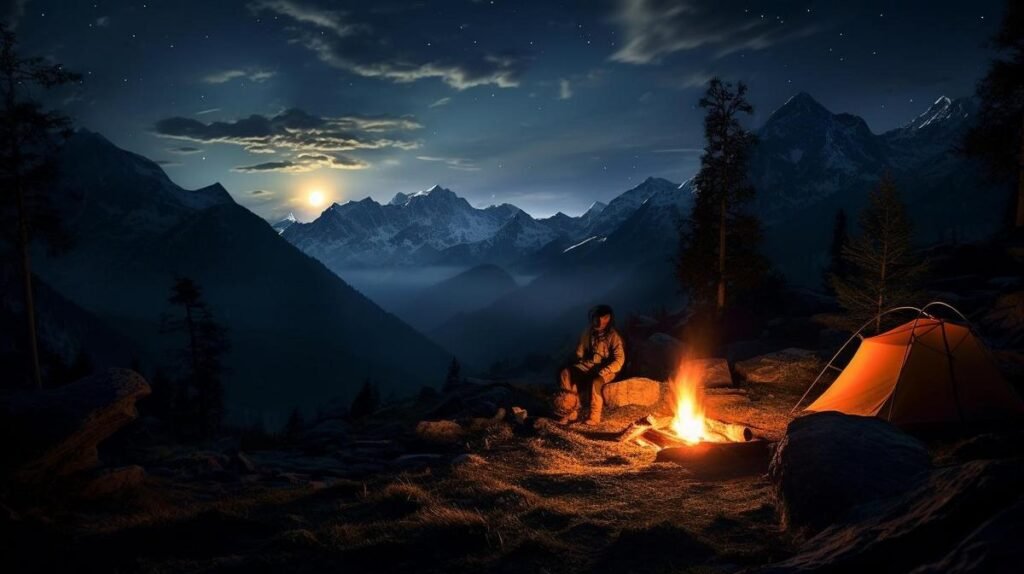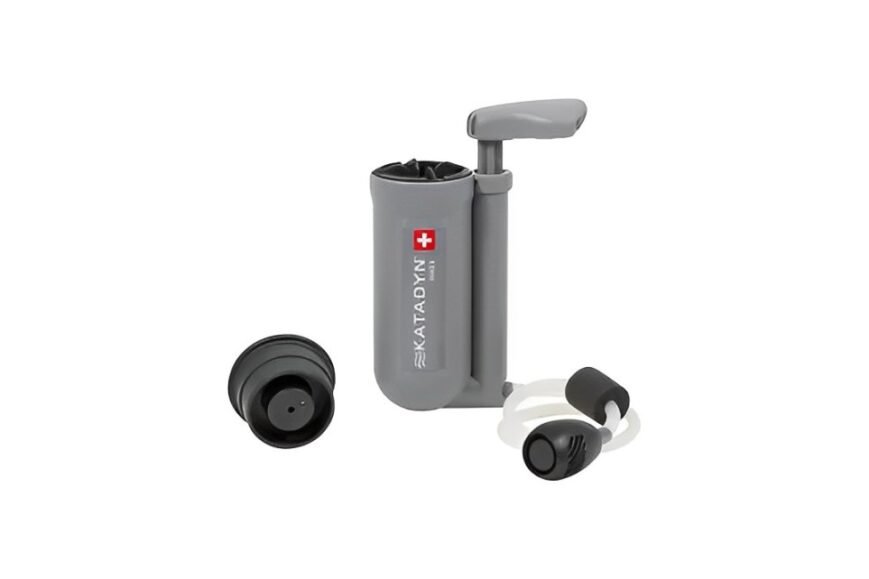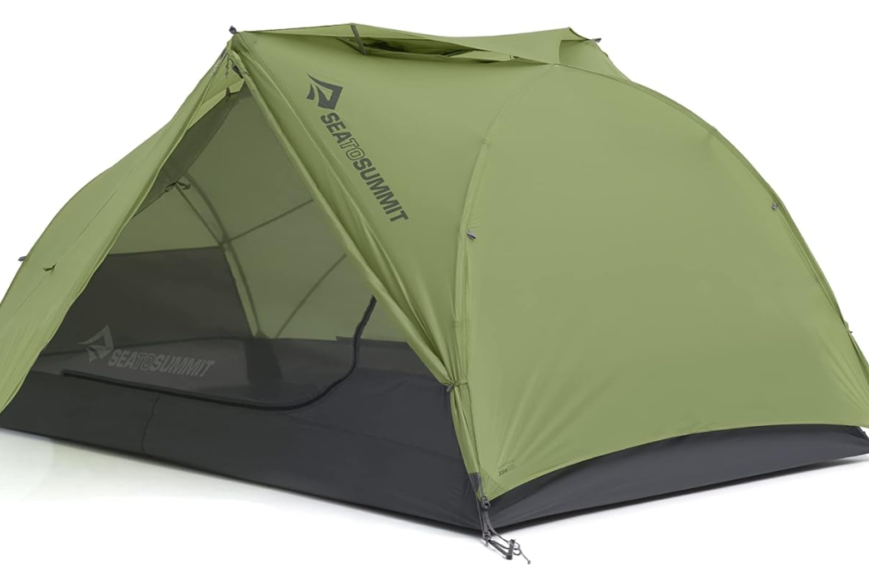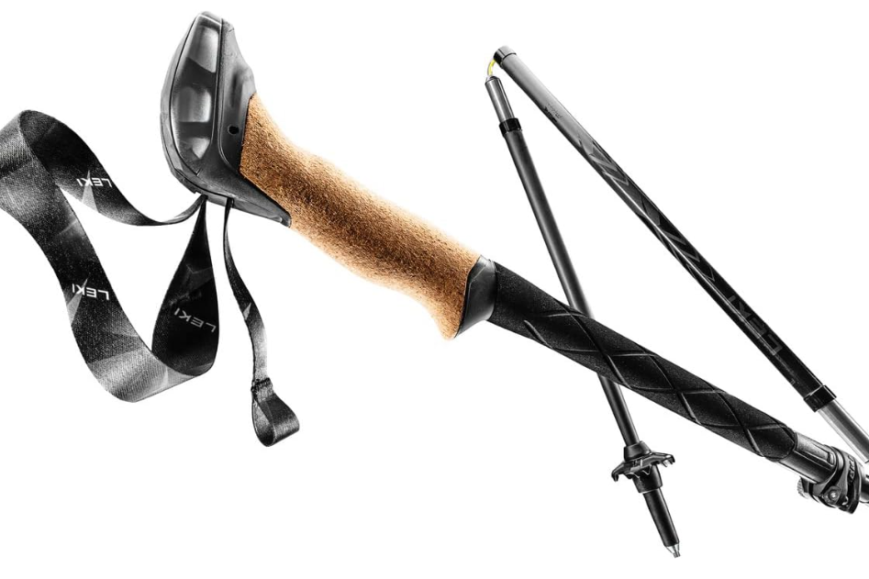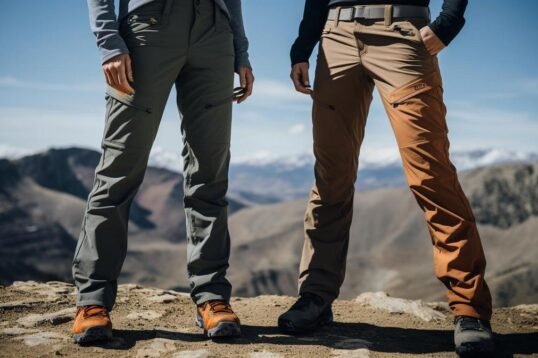- Food should be high-calorie and non-perishable, like nuts, seeds, and freeze-dried meals; avoid heavy canned foods.
- Water is crucial; carry at least half a gallon per day, always filter or purify natural water, and keep hydrated.
- Pack snacks (trail mix, energy bars) for quick energy, and eat frequently.
- Organize food to find it easily and pack out all trash.
- Choose destinations with water sources in mind and treat all water before drinking.
- For night hiking, use a headlamp and know local wildlife.
- Wear layered, moisture-wicking clothes, and appropriate footwear, and consider weather conditions.
- Lightweight, multi-purpose gear is recommended for packing; share items to reduce weight.
- Use a map and compass (or GPS as a backup) for navigation.
- Follow Leave No Trace principles and respect wildlife and fellow hikers.
Hey trailblazer, packing right can make or break your overnight hike. Staying fueled and hydrated are top priorities when you’re out in the wild. You need energy to trek and a clear mind to enjoy the stars. Let’s dive into the best food and water tips to keep you going. Get ready to master meal planning and water purifying – your adventure awaits! Now, who’s hungry for knowledge and nature’s wonders? Read on!

What Are the Essential Needs for Overnight Hiking?
For food, plan high-calorie meals that fuel your body. Pack lightweight, non-perishable foods like nuts, seeds, and dried fruits that offer quick energy. Canned foods are usually too heavy. For dinner, freeze-dried meals are a smart move. Just add hot water, and you’ve got a filling dish.
When it comes to water, never skimp. You need at least half a gallon per day, more if the hike is tough or the weather is hot. Streams and lakes can serve as water sources, but they can host germs too. So, use a filter or purifying drops to make water safe to drink. Don’t drink straight from the wild.
Carry snacks in pockets for easy access. You can munch on trail mix or an energy bar while on the move. For breakfast, oatmeal packets are light and only need boiling water.
Pack meals in order. This way, you grab what you need without searching. At night, clean all your dishes far from where you sleep. This keeps animals away.
Remember, energy and hydration are key. Plan every meal, pack smart, and stay safe. Happy trails!
What Are the Essential Food and Hydration Tips for Overnight Hiking?
When planning food for a hike, pack enough calories to fuel your adventure. Choose foods that are both nourishing and simple to prepare. They should also be light to carry. Your body will need a good mix of carbs, protein, and fats to keep going.
For hydration, always carry a water filter or purifying tablets. Water sources can be full of little bugs that can make you sick. It’s vital to drink lots of water, even if you don’t feel thirsty, to avoid dehydration. A hydration pack is a good way to drink water throughout your hike.
Pack snacks like nuts and dried fruits for quick energy. These foods don’t take up much space or weight in your backpack. They will give you a good energy boost when you need it.
Keep your food in sealed containers to keep it safe and fresh. Planning can help you avoid attracting animals to your campsite. Remember, good food will make your hike more enjoyable. Always leave no trace of your stay and carry out all trash. This keeps the trails nice for everyone.
To sum it up, choose foods that give you the right type of energy. Always have enough water, and keep your food safe from wildlife.
Planning Meals For Multi-day Hikes?
Ah, the art of planning meals for multi-day hikes! It’s a skill that every seasoned hiker should master. When embarking on an overnight hiking trip, it’s absolutely vital to ensure that you have enough food and water to sustain you throughout your adventure.
After all, you’ll need those calories to fuel your body and keep you going strong on the trails. So, let’s dive into the world of meal planning and discover how to optimize your food and water intake for a safe and enjoyable multi-day hike.
Caloric Needs: Fueling Your Body
When it comes to planning meals for multi-day hikes, one of the most important considerations is meeting your high-caloric needs. Hiking requires a significant amount of energy, so it’s crucial to pack foods that are rich in calories. Nuts, seeds, and energy bars are excellent options to consider. Not only are they lightweight and easy to carry, but they also provide a substantial amount of energy to keep you going on those challenging trails.
Water Sources and Purification Methods: Staying Hydrated and Safe
While hiking, it’s essential to prioritize water safety. Not all water sources you encounter on the trail are safe to drink from directly. Therefore, it’s crucial to purify the water you find to ensure your safety.
There are several methods you can use to purify water, such as boiling it, using purification tablets, or employing a water filter. These methods effectively eliminate harmful germs and bacteria, making the water safe for consumption. Remember, staying hydrated is key to maintaining your energy levels and preventing dehydration during your hike.
Snacking Strategies for Energy Maintenance: Sustaining Your Stamina
To sustain your stamina throughout your multi-day hike, it’s important to have a snacking strategy in place. Consuming small snacks frequently will help keep your energy levels up.
Dried fruit and jerky are excellent choices for on-the-go snacking. They are lightweight, easy to carry, and provide a quick boost of energy when you need it most. So, make sure to pack these energy-packed snacks in your backpack for easy access during your hike.
Packing and Organizing Food Efficiently: Lightening Your Load
Efficiently packing and organizing your food can make a significant difference in your hiking experience. Lightweight bags are a hiker’s best friend when it comes to sorting and packing meals. Plan your meals day by day and pack them in order, starting with the heaviest items.
This approach not only keeps your backpack organized but also reduces the overall weight you’ll be carrying as you progress through your journey. So, take the time to plan and pack your meals strategically for a lighter and more enjoyable hike.
Respecting Nature and Others: Cooking and Cleaning Etiquette in the Backcountry
When venturing into the backcountry, it’s essential to practice proper cooking and cleaning etiquette to respect nature and fellow hikers. Cook at a safe distance from your tent to minimize the risk of attracting animals. After enjoying your meal, promptly clean your dishes using a small brush and biodegradable soap.
Dispose of any food scraps in a trash bag to prevent littering and attract unwanted wildlife. Remember, we are guests in the wild, and it’s our responsibility to leave no trace and preserve the beauty of nature for future generations.

Managing Pack Weight and Volume
Pack light to save your back. Pick gear you need, not just want. Share items with friends to cut down on what you carry. For a weekend hike, balance your gear so the load feels even. Use bags and clothes that can squish to help use less space in your pack. Place heavy items close to your back for better support. Remember, smart packing means more fun hiking!
When I pack for an overnight hike, I always start with a list. This stops me from taking too much. The best things for an overnight hiking trip are only what you must have. That can be a warm jacket, food, water, and a place to sleep. Items like a tent can be heavy. Try a light tarp or a hammock instead. Pick a sleeping pad that’s easy to roll up and won’t poke you in the back.
The trick to packing for overnight hiking trips is simplicity. Keep your list short. You don’t need as much as you think. Pack gear that serves more than one purpose. A pot for cooking can also be your bowl. Water bottles can fill empty spaces in your pack to keep things tight and right.
Remember, less weight makes the hike more comfortable. It also means you can move with more ease. You’ll be a happy camper with a well-packed bag!
What Are Some Essential Skills and Etiquette for Overnight Hikers?
We all love a clean campsite, don’t we? It makes for a comfy sleep and a happy forest. Keep it that way! Pack out all your trash and keep your camp spick and span. Use a small brush and dustpan or pack a trash bag to leave no trace.
It’s not just about being tidy. Being quiet is key, too. Other folks want to enjoy the peace of nature. So keep the noise down, especially at night. Use soft voices and turn off loud music. This way, everyone can soak in the sounds of the wild.
Backcountry toilet practices go beyond just basic privacy. Dig a small hole at least 200 feet away from any water, trails, or campsites. This helps stop any yuck from getting into water sources or trails.
Campfires can be risky, so check if they’re allowed. Use existing fire rings and never leave a fire unattended. Before you snooze, douse your fire with water and make sure it’s dead out.
Finally, let’s talk about our furry and feathered neighbors. If you see wildlife, stay calm and keep your distance. Give them space and do not feed them. Stick to marked trails to protect sensitive plants and habitats. Remember, we are guests in their home.
So there you have it. Keep your camp clean, respect the peace, do your business right, use fire wisely, and be cool around critters. Stick to these rules, and you’ll not only help preserve nature’s beauty but make sure everyone’s outdoor adventure is simply awesome.

Conclusion
This post gave you the lowdown on what to pack for a safe, fun overnight hike. You learned how to pick your backpack, set up where you’ll sleep, and what tools you need to get around. We covered how to dress for any weather, choose the right snacks and water gear, and keep safe in the dark.
I also shared tips on cutting down your pack’s weight and finding your way. Remember these pointers, respect the wild and get ready for a great time outdoors. Your adventures await!
![]()

